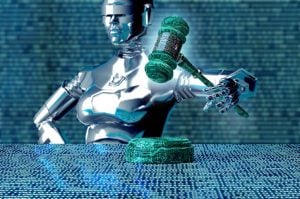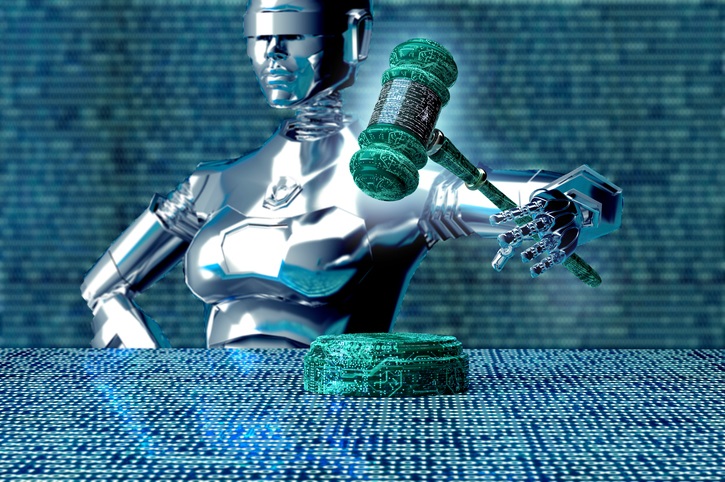Judges, You are out of Order!
[ad_1]
 Technology and courts are not a good match. The judges are more concerned about precedents while the technology adoption process focuses on the future. In fact, the pandemic was a major factor in reducing friction as the courts became more accustomed to electronic filing and virtual court procedures. Some judges acknowledged the value and convenience online appearances can bring in certain matters.
Technology and courts are not a good match. The judges are more concerned about precedents while the technology adoption process focuses on the future. In fact, the pandemic was a major factor in reducing friction as the courts became more accustomed to electronic filing and virtual court procedures. Some judges acknowledged the value and convenience online appearances can bring in certain matters.
Despite their notable adaptation and changing attitude, our judicial colleagues were completely unprepared for generative AI’s (GenAI) impact on the practice and practice of law. Since the release last year of GPT-4, lawyers have increasingly relied upon the output of GenAI to draft and submit pleadings, memoranda, and other documents to the courts.
Many lawyers have been in the news after submitting court documents with GenAI-generated false case citations, despite being warned repeatedly to refrain from doing so. Review all GenAI output.. According to the recent increase in headlines, more lawyers today than ever before are relying on GenAI for legal research. But they are utterly failing their ethical obligations and basic competence:
- A lawyer was sanctioned Massachusetts Superior Court for filing numerous memoranda with false case citations (2/12/24).
- A British Columbia attorney was reprimanded. ordered AI “hallucination”, 2/20/24, was the reason for paying costs to opposing counsel when they discovered precedent.
- Florida attorney U.S. District Court for the Middle District of Florida for submitting submissions relying upon false case citations (3/8/24).
- A court has called out a lawyer, a self-represented litigant, for submitting false cases citations for the court. Second, Time and the case was After a summary judgment was granted on other grounds (3/21/24).
- You can also find out more about the following: 9th Circuit summarily dismissed an case Without addressing the merits due to the attorney’s reliance upon fake cases (3/22/24).
These situations clearly show a failure to meet basic competency obligations. This isn’t a matter of technology expertise. These instances show that lawyers have failed to review documents carefully before they are submitted to court.
Judges are motivated to act by this failure. Many judges have signed orders governing GenAI usage in courtrooms. RAILS has compiled an overview of the issues surrounding GenAI usage in legal services. Running list of these efforts. Currently, 48 documents are being tracked, including orders, guidelines and rules which are either in the process of being issued or have already been.
Regulation of GenAI usage can take many forms, including: providing guidance on GenAI usage, requiring disclosure of GenAI use, or banning it altogether. This haphazard, varied, and well-intentioned set of tactics fails to provide consistency, as explained in the RAILS Declaration Statement:
The sheer number and lack of consistency of these orders [in] Their provisions can cause confusion for litigants and practitioners, who may need to appear before many different courts.
There is no clarity in the courts.
The increasing number of fake cases citations is a clear indication of a much deeper problem. Namely, some lawyers are not reviewing their work before submitting it to the court — and this is not a new occurrence.
Historically, cases which seemed out of context within a document would be dismissed as errors or misinterpretations. False case references, however, now demonstrate that the work submitted was not reviewed. It’s true that this type of negligence was present in the past. However, it is much easier for authorities to prove when citing nonexistent cases.
Other words, the issue is not technology, but attorney competency. This is an issue that has existed for a long time, and knee-jerk responses to GenAI will not solve it. While it may be tempting to react to disruptive technologies in a hasty manner, the legal profession would benefit from developing robust and uniform educational guidelines for responsible AI use, and focusing on the timeless principles that require careful review and thorough analysis.
Nicole Black Rochester, New York Attorney and Director of Business and Community Relations MyCaseIt is a web-based software for managing law firms. She’s been blogging Since 2005, has written a Weekly Column Since 2007, he has been the author of the Daily Record. Cloud Computing for Lawyers, co-authors Social Media for Lawyers – The Next Frontier, and other authors Criminal Law in New York. She is easily distracted by bright and shiny gadgets and good food and wine. You can follow her Twitter account at @nikiblack You can reach her at niki.black@mycase.com.
[ad_2]



